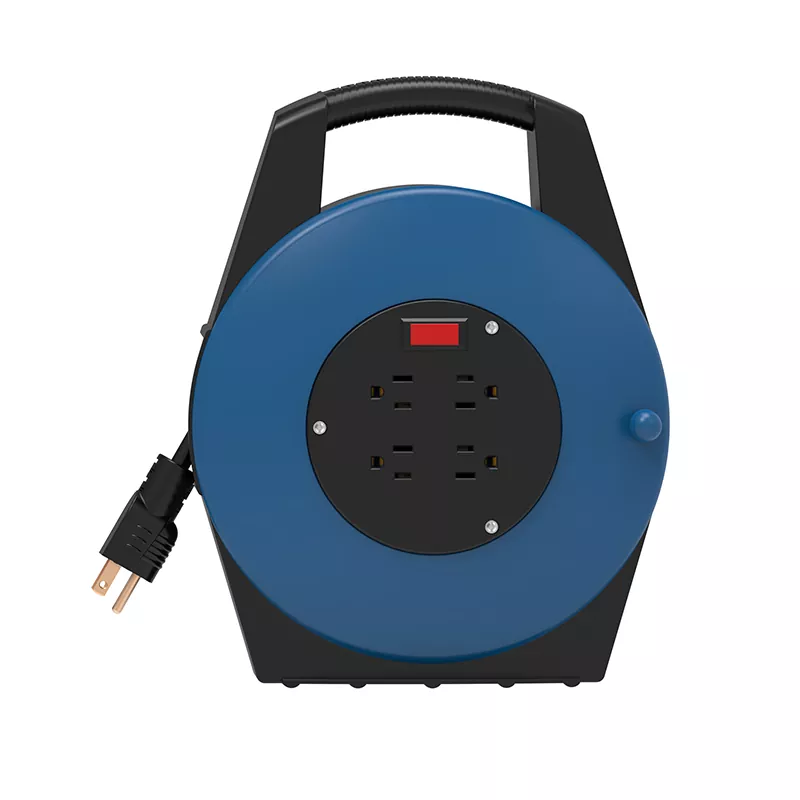The cord reel is an electric power transmission device that integrates rotating contacts and cable storage functions. Its core feature is that the cable can be orderly retracted and released through a slip ring structure. The life decay of this product is strongly correlated with overheating of the wire, and the thermal effect causes cascading damage to different components.
When the wire is overheated, the heat is transferred along the conductor to the slip ring contact, and the copper conductive ring expands due to heat, causing the brush pressure to be unbalanced. Continuous high temperature accelerates the stress relaxation of the brush spring and weakens the contact tracking. When the heat load exceeds the critical value, it will cause plastic deformation of the polyvinyl chloride wire skin, and the adhesion of adjacent wire turns during winding will aggravate the local temperature rise.
The high temperature environment causes the molecular chain of the cable insulation layer to break, and the wire body that loses its flexibility will produce microcracks during repeated bending. The engineering plastic of the cord reel slip ring cover has a lower glass transition temperature under thermal radiation, and the brittle shell is easily broken by mechanical impact.

So how does overheating of the wire cause chain failure?
The softening of the wire skin causes the cable to be stacked and deformed in the cord reel spring groove, increasing the rotation resistance and accelerating the fatigue of the spring. The thickening of the oxide layer on the slip ring contact increases the contact resistance, forming an overheating positive feedback loop. The difference in thermal expansion coefficient between the metal shaft and the plastic bearing seat induces variation in the fit clearance under high temperature conditions, resulting in abnormal vibration and wear.






